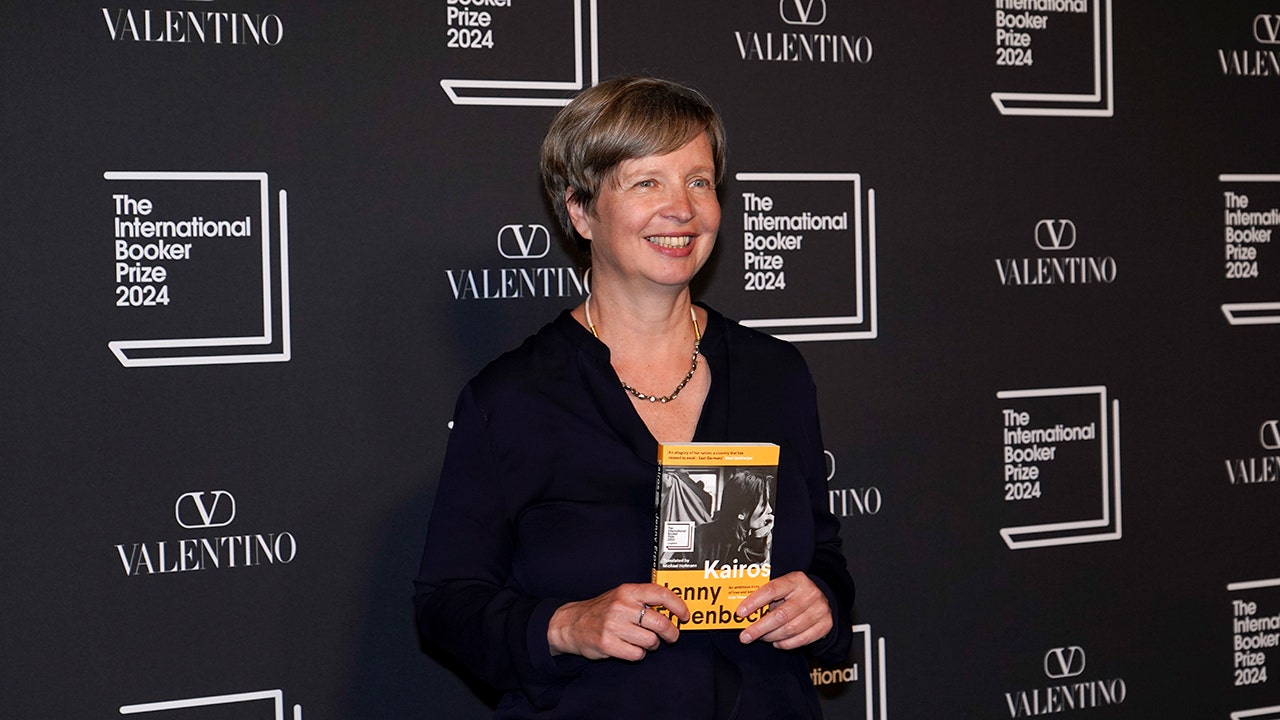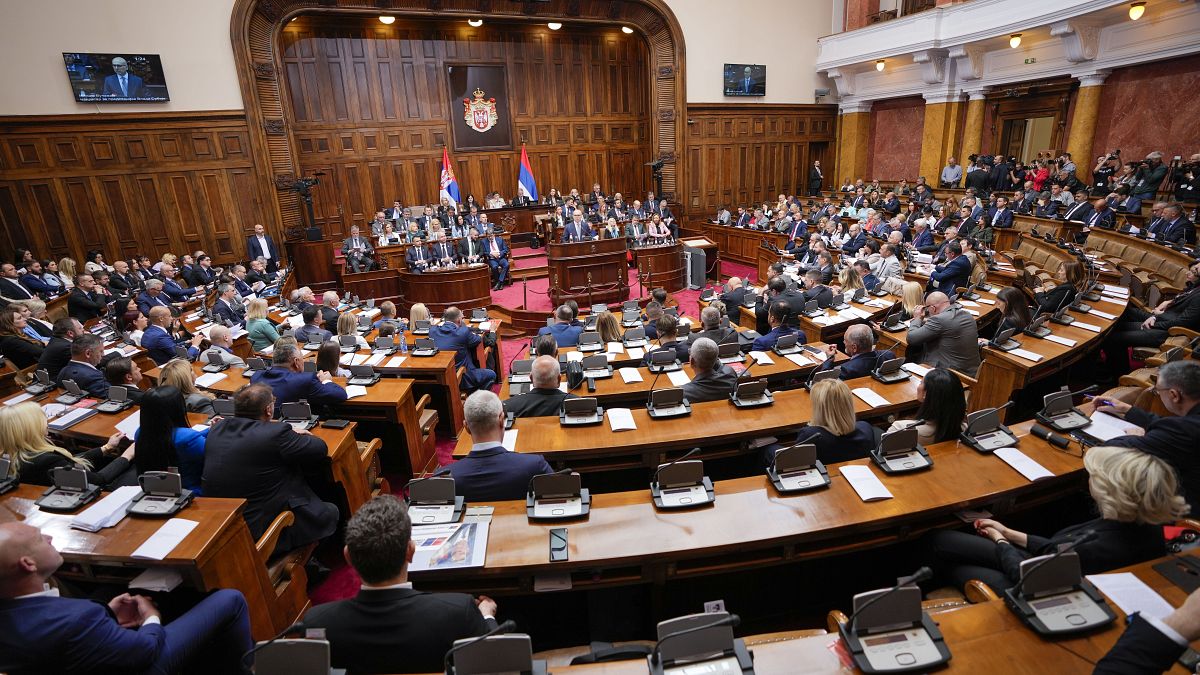World
India’s navy deploys warships to Arabian Sea after tanker attack

Guided missile destroyers to ‘maintain deterrent presence’ after Israel-linked vessel hit off Indian coast.
The Indian Navy has dispatched guided missile destroyers to the Arabian Sea after an attack on an Israel-linked chemical tanker off its coast, the Ministry of Defence said.
Three stealth-guided destroyers were deployed “in various areas of the sea” to “maintain a deterrent presence” considering the “recent spate of attacks in the Arabian Sea”, the ministry said in a statement late on Monday. It was also using long-range maritime patrol aircraft for “domain awareness”, it said.
The United States claimed that the December 23 strike on MV Chem Pluto in the Indian Ocean was “fired from Iran”, an accusation that Tehran has dismissed as baseless.
The attack came as a US-led task force sought to counter similar threats to maritime shipping in the Red Sea posed by Yemen’s Iran-aligned Houthi rebels.
Amid the uptick in maritime strikes, this was the first that the US has sought to directly pin on Iran. It was also the first on a vessel outside the Red Sea.
“We can see that militarisation is increasing, not only in the Red Sea, but also in the Arabian Peninsula,” said Al Jazeera’s Resul Sardar, reporting from Djibouti.
“These are the regional ramifications of the war on Gaza,” he reported on Tuesday.
The Indian Navy said it was investigating the nature of the attack on MV Chem Puto, which “anchored safely” in the financial capital, Mumbai, on Monday.
An initial assessment “pointed to a drone attack”, the ministry said. But “further forensic and technical analysis will be required to establish the vector of attack, including type and amount of explosive used”.
The vessel had been “cleared for further operation” by its company, according to the ministry.
Shipping under threat
MV Chem Pluto, a Japanese-owned tanker carrying 21 Indians and one Vietnamese citizen, was hit on Saturday while travelling 200 nautical miles (370km) off the coast of India, according to the Pentagon. The attack sparked a fire, which was put out, but caused no casualties.
The Houthis have pledged to target any Israel-linked vessel in the Red Sea, through which some 12 percent of all global trade passes, in solidarity with Gaza which has been bombarded by land, sea and air by the Israeli military.
Sardar said that despite the new US-led task force, there still hasn’t been an increase in ships trying to pass through the Red Sea, adding that dozens of cargo ships remain stranded in Djibouti.
Since October, the Houthis have waged attacks on more than a dozen vessels, pushing some of the world’s largest firms to abandon the route. The attack in the Indian Ocean, far away from the Red Sea, has raised concerns about even broader risks to maritime shipping amid the Israeli-Palestinian conflict.
Washington has accused Tehran of being “deeply involved” in the Houthi operations.
But Iran insists that it is not coordinating with the Houthis and plays no role in the attacks.
“The resistance [Houthis] has its own tools … and acts in accordance with its own decisions and capabilities,” Iran’s Deputy Foreign Minister Ali Bagheri told the Mehr news agency on Saturday.

World
German author Jenny Erpenbeck wins International Booker Prize for tale of tangled love affair

German author Jenny Erpenbeck and translator Michael Hofmann won the International Booker Prize for fiction on Tuesday for “Kairos,” the story of a tangled love affair during the final years of East Germany’s existence.
The novel beat five other finalists, chosen from 149 submitted novels, for the prize, which recognizes fiction from around the world that has been translated into English and published in the U.K. or Ireland. The 50,000 pounds ($64,000) in prize money is divided between author and translator.
COURT FINES GERMAN-TURKISH AUTHOR OVER ‘DEATH CAMP’ SPEECH
Canadian broadcaster Eleanor Wachtel, who chaired the five-member judging panel, said Erpenbeck’s novel about the relationship between a student and an older writer is “a richly textured evocation of a tormented love affair, the entanglement of personal and national transformations.”
Jenny Erpenbeck, author of Kairos, poses ahead of the International Booker Prize, in London, Tuesday, May 21, 2024. (AP Photo/Alberto Pezzali)
It’s set in the dying days of the German Democratic Republic, leading up to the fall of the Berlin Wall. Erpenbeck, 57, was born and raised in East Berlin, which was part of East Germany until the country disappeared with German reunification in 1990.
“Like the GDR, (the book) starts with optimism and trust, then unravels so badly,” Wachtel said.
She said Hofmann’s translation captures the “eloquence and eccentricities” of Erpenbeck’s prose.
The International Booker Prize is awarded every year. It is run alongside the Booker Prize for English-language fiction, which will be handed out in the fall.
Last year’s winner was another novel about communism and its legacy in Europe, “Time Shelter” by Bulgarian writer Georgi Gospodinov and translated by Angela Rodel.
The prize was set up to boost the profile of fiction in other languages — which accounts for only a small share of books published in Britain — and to salute the underappreciated work of literary translators.
Hoffman is the first male translator to win the International Booker Prize since it launched in its current form in 2016.
World
Serbian parliamentary minnow pushes for 'Russian law' equivalent

The proposed anti-foreign NGO law could bring more attention to the left-wing nationalist Movement of Socialists party, which currently has just two MPs in the 250-seat National Assembly.
Serbia’s Movement of Socialists party has announced it will draft a bill aiming to restrict the activities of foreign non-governmental organisations operating in the Balkan country.
The draft closely resembles the highly controversial law on foreign agents that is expected to be implemented in Georgia soon.
Defending the draft law, Movement of Socialists MP Bojan Torbica said, “Betraying one’s own country and people can no longer be a highly profitable activity.”
The proposed anti-foreign NGO law could bring more attention to the left-wing nationalist party, which currently has just two MPs in the 250-seat National Assembly.
“I really believe that it is a threat to the Republic of Serbia if there are NGOs that are donated from abroad and work here to propagate Kosovo as an independent state, to propagate the genocide in Srebrenica and the destruction of Republika Srpska,” said Đorđe Komlenski, parliamentary leader of the Movement of Socialists.
The three issues — two of which pertain to neighbouring Bosnia and Herzegovina — have been prominent talking points of nationalist politicians in Serbia ever since the disintegration of the former Yugoslavia and a series of bloody wars in the region in the 1990s.
While it is unclear whether Komlenski and Torbica alone can gather enough support to advance the law past the draft stage, civil society actors, such as the Youth Initiative for Human Rights, are concerned that the bill will impact Serbian society’s future.
Marko Milosavljević from Youth Initiative for Human Rights sees the move as a means of intimidating civil society and independent media.
“Through these announcements, we actually see the ban on the advocacy of certain democratic principles is kind of desireable,” Milosavljević said.
Serbian voters will go to the polls on 2 June to participate in a rerun of last year’s local election in 66 electoral units, including the capital, Belgrade.
The EU recently criticised Serbia, a candidate for EU membership, for not conducting free and fair elections, citing allegations of voter fraud.
World
Primo Cancelled at Freevee After ‘Short but Beautiful Run,’ Says Creator

ad
-

 News1 week ago
News1 week agoSkeletal remains found almost 40 years ago identified as woman who disappeared in 1968
-

 World1 week ago
World1 week agoIndia Lok Sabha election 2024 Phase 4: Who votes and what’s at stake?
-

 World1 week ago
World1 week agoUkraine’s military chief admits ‘difficult situation’ in Kharkiv region
-

 Movie Reviews1 week ago
Movie Reviews1 week agoAavesham Movie Review
-

 News1 week ago
News1 week agoTrump, Reciting Songs And Praising Cannibals, Draws Yawns And Raises Eyebrows
-

 World1 week ago
World1 week agoCatalans vote in crucial regional election for the separatist movement
-

 Movie Reviews1 week ago
Movie Reviews1 week agoUnfrosted Movie Review: A sweet origins film which borders on the saccharine
-

 Politics1 week ago
Politics1 week agoNorth Dakota gov, former presidential candidate Doug Burgum front and center at Trump New Jersey rally









/cdn.vox-cdn.com/uploads/chorus_asset/file/25458735/onexplayer_comparo.jpg)








